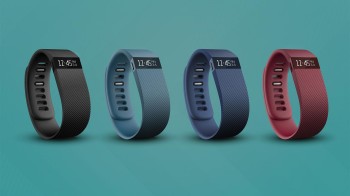
A Fitbit Charge HR helped doctors avoid mistreatment in a sensitive medical issue
Most people think of fitness trackers and think of it as a fad, game, or a way to keep track of your long term health and activity. For one man, it was the potential difference maker between life and death.
A man reportedly checked into Our Lady of Lourdes Medical Center after suffering a seizure. The doctors noticed his heart beat was fast and irregular, a symptom that could easily be treated with a cardioversion procedure.
The problem is the doctors didn’t know whether the irregular heart beat was chronic or a direct cause of the seizure. If irregular, a cardioversion could cause a stroke, and if left unchecked a chronic condition could also cause a stroke.
Looking at his Fitbit, the doctors were able to quickly determine that the arrhythmia was caused by the seizure as his typical heartbeat was between 70bpm and 80bpm, and only jumped over 150bpm at the moment the seizure began. As such, they went ahead with the cardioversion and all was well.
Of course, doctors have long had the ability to determine whether an arrhythmia is chronic or an outlier condition, but they typically require tests which might take a fair bit of time, time that they might not have in urgent cases.
So, is a Fitbit the future of health? Somewhat. It’s not always going to save lives. Not all Fitbits even have a heart rate sensor. And consumer activity trackers are far from being approved as medical devices, with a doctor from the aforementioned hospital reminding us that use of a device like this to make a medical decision is made at the discretion of the doctor. That said, with the work companies like Apple and Google are putting into the marriage of consumer electronics and health, it’s sure to become increasingly more important and useful to have than not.
[Eurekalert via ArsTechnica]